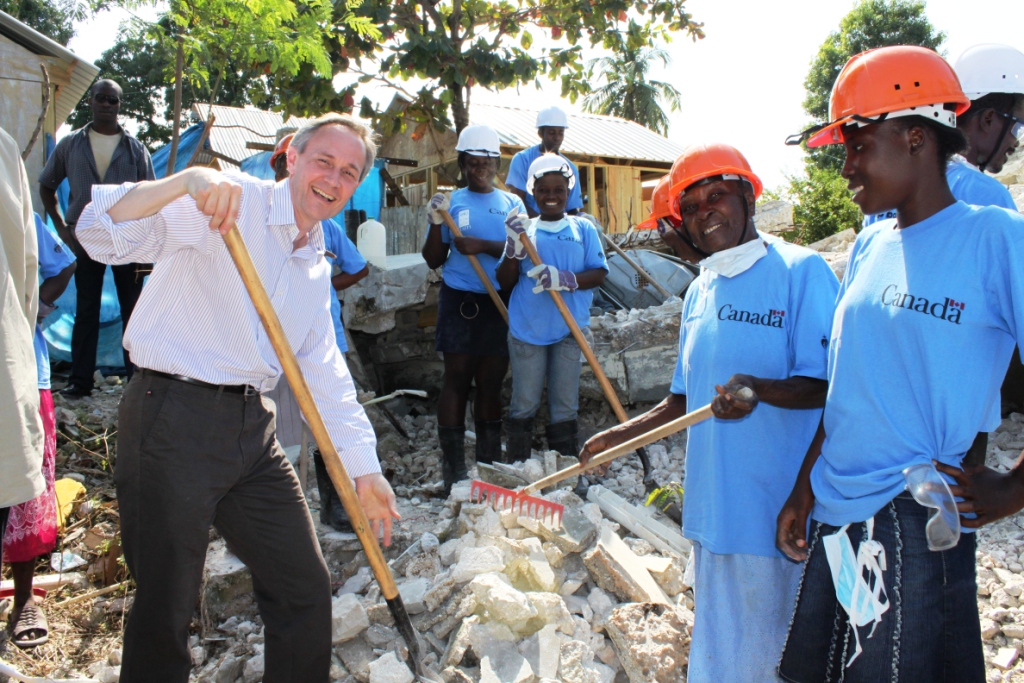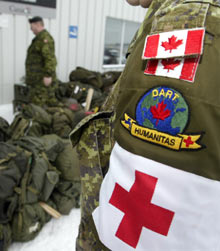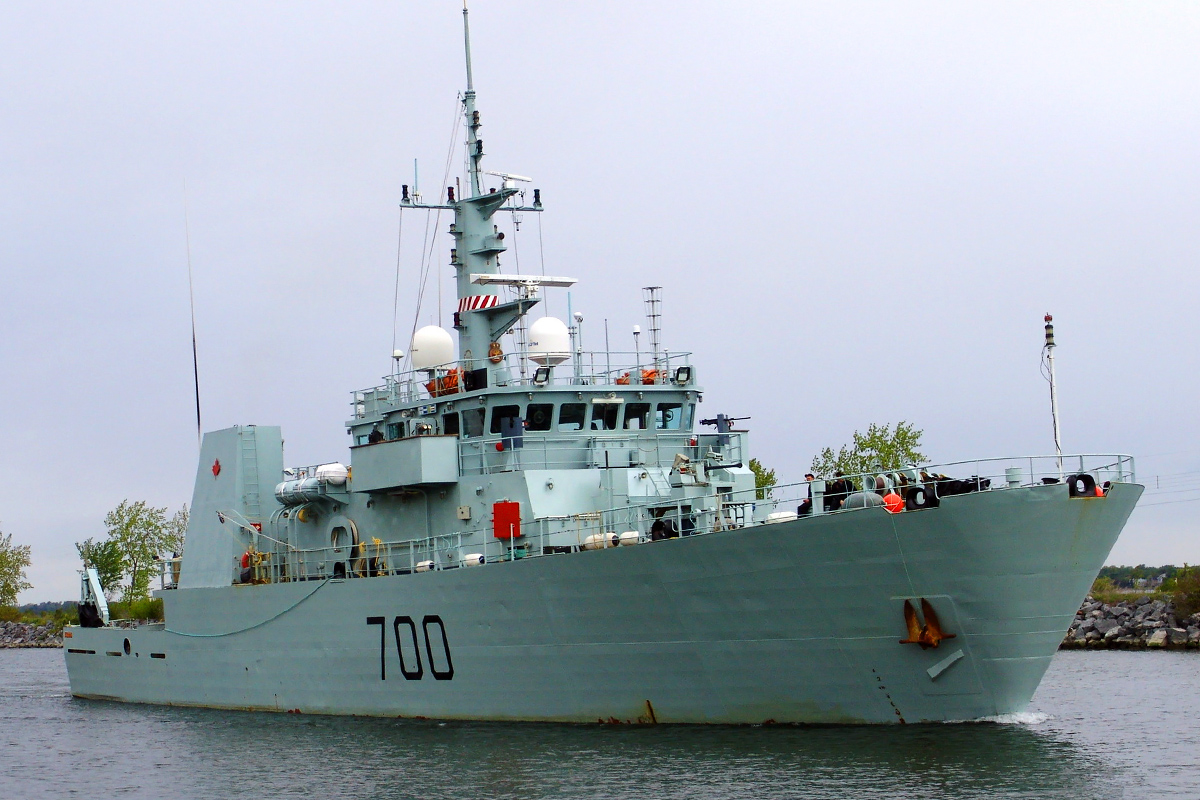In June of 2013, Canadians learned that Prime Minister Harper was deploying a Canadian Forces infantry platoon to Haiti for peacekeeping duties. The 34 Canadian soldiers of the Quebec-based Royal 22e Regiment are embedded in a Brazilian unit. This deployment was greeted with surprise by much of the press as well as close observers of Canada’s international aid. After all, the Harper government has generally shown a distinct disinterest in peacekeeping. Moreover, the Canadian International Development Agency (CIDA) is holding aid projects in Haiti in limbo.
[captionpix align=”left” theme=”elegant” width=”300″ imgsrc=”http://s1.dmcdn.net/AL5wq/526×297-Ws-.jpg” captiontext=”Canadian Ambassador to Haiti Paul Normandin”]
Ben Makuch of Vice Magazine tried to explain the rationale behind the mission, but his article largely missed the mark. Makuch claimed that the Department of National Defense (DND) needed the mission to keep busy and argued that Prime Minister Harper wanted an “easy win” after the trauma of Kandahar. He even suggested that Harper may have launched the mission in the hopes of commercial concessions from Brazil. In fact, the Haiti mission is not guided primarily by such tactical concerns. Rather, Canada’s mission in Haiti is guided by the federal government’s twin ambitions of strengthening its strategic partnership with Brazil and pursuing what has been referred to as the “national unity imperative” in Canadian foreign policy.
Expanding relations with Latin America is a key priority for the Harper government. The Prime Minister announced an “Americas Strategy” in 2007 and since then he has negotiated trade partnerships with Peru and Colombia. Indeed, Foreign Affairs Minister John Baird devoted two weeks to visit the region in August. Guided by the region’s increased importance in Canadian foreign policy and the threat to Canada’s national interests that regional emergencies could pose, the DND too is eagerly pursuing security partnerships in the region.
Since it is the most powerful economy in Latin America, Brazil has naturally assumed great importance for Canada. The two countries launched an annual Strategic Partnership Dialogue in 2012, and Canada’s Ambassador to Brazil, Jamal Khokhar, termed Brazil “a priority market for Canada.” Moreover, the Canadian government is trying to deepen the relationship to include security cooperation. After all, Brazil is playing a growing role in international operations, such as the UN mission in Haiti. As a 2012 Senate report recommended, Canada can improve the bilateral relationship by pursuing joint peacekeeping missions with Brazil. The Haiti mission could assume new importance as a means of confidence-building, especially in light of revelations of possible Canadian economic espionage on Brazilian industries.
[captionpix align=”center” theme=”elegant” width=”300″ imgsrc=”http://i.huffpost.com/gen/1393619/thumbs/n-DILMA-ROUSSEFF-STEPHEN-HARPER-large570.jpg?15″ captiontext=”Alphabetical arrangements lead to an awkward situation between Braziliam PM Dilma Roussef and PM Harper”]
Moreover, an expanded Haiti mission is an ideal tool to pursue the national unity imperative in Canadian foreign policy and to combat the Parti Quebecois government’s steps towards “sovereigntist governance” in international affairs. The PQ wants to take the money Quebec pays to CIDA from Ottawa in order to create its own international development agency, resembling certain agencies in separatist regions of European states. Just last week, Quebec’s International Relations Minister Jean-Francois Lisee announced plans to use the organization as a vehicle to gain independent stature and prestige for Quebec on the world stage.
Lisee’s proposals draw strength from discontent about the perceived failings of CIDA, which he blamed for pursuing Canada’s economic interests at the expense of “international solidarity.” Moreover, many Quebecers resent what they see as Harper’s neglect of francophone Haiti and have called for a future Quebec development agency to target aid to Haiti. Thus, Canada’s mission to Haiti has the potential to communicate to Quebecers that Canada is committed to the people of Haiti out of international solidarity and that Quebecers are playing a valuable role within a whole-of-government Canadian effort. Since the regiment of CF soldiers sent by Canada are francophone, they will likely be able to communicate more easily with Haitians. This mission also communicates to Haiti and other countries that Canada is a more advantageous partner than Quebec. When in the 1960s Quebec tried to assert its independence in foreign affairs in the Gabon Affair, Canada successfully used generous development assistance to persuade African states that Canada had more to offer. The Haiti deployment reinforces this message, as Quebec, of course, lacks a military of its own.
Still, if Ottawa is serious about stemming the threat to national unity of an independent Quebec aid agency, it should both expand the size of the peacekeeping force and increase development aid. By expanding Canada’s commitment to Haiti, Ottawa can both strengthen its strategic partnership with Brazil abroad and further national unity at home.




